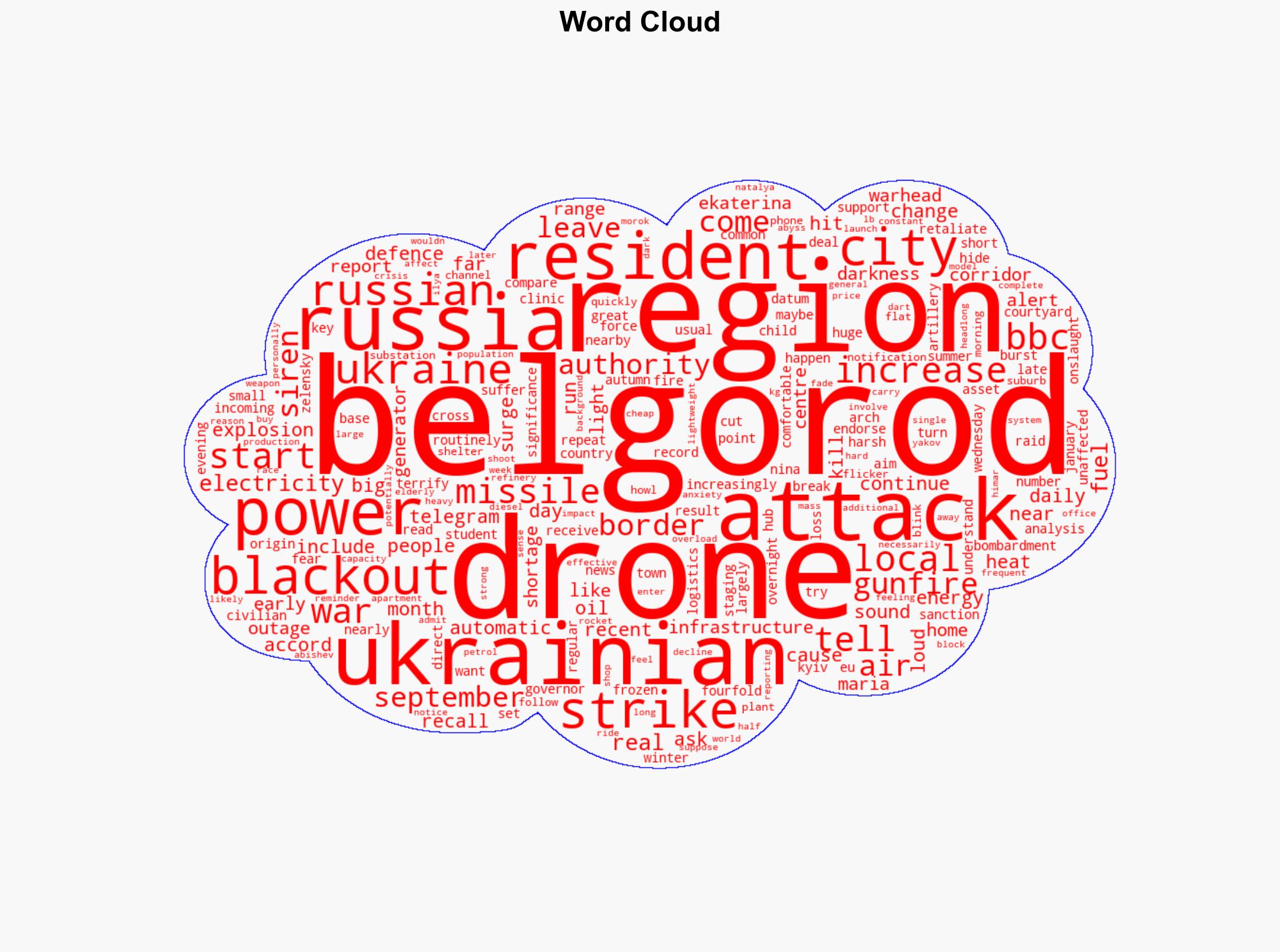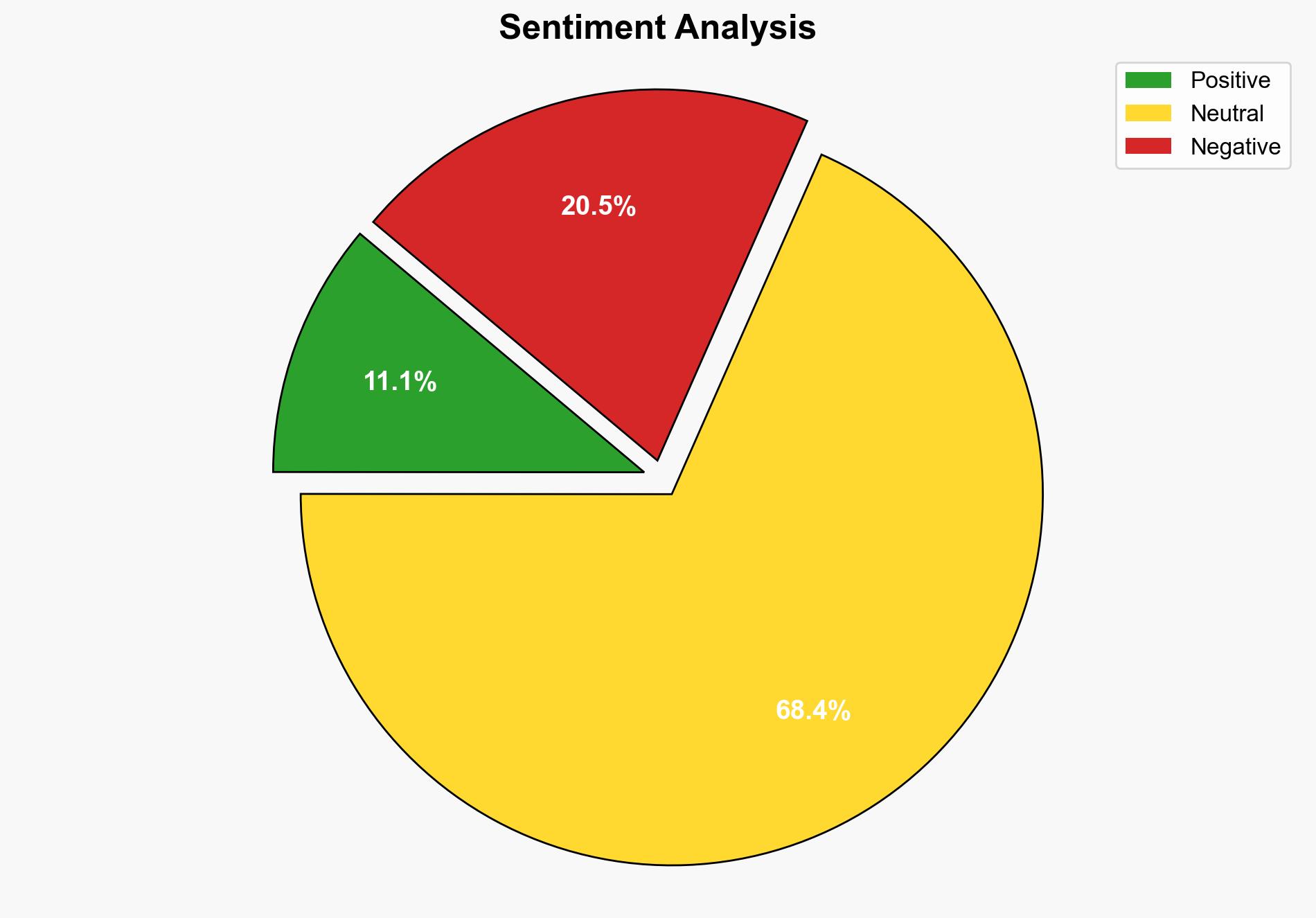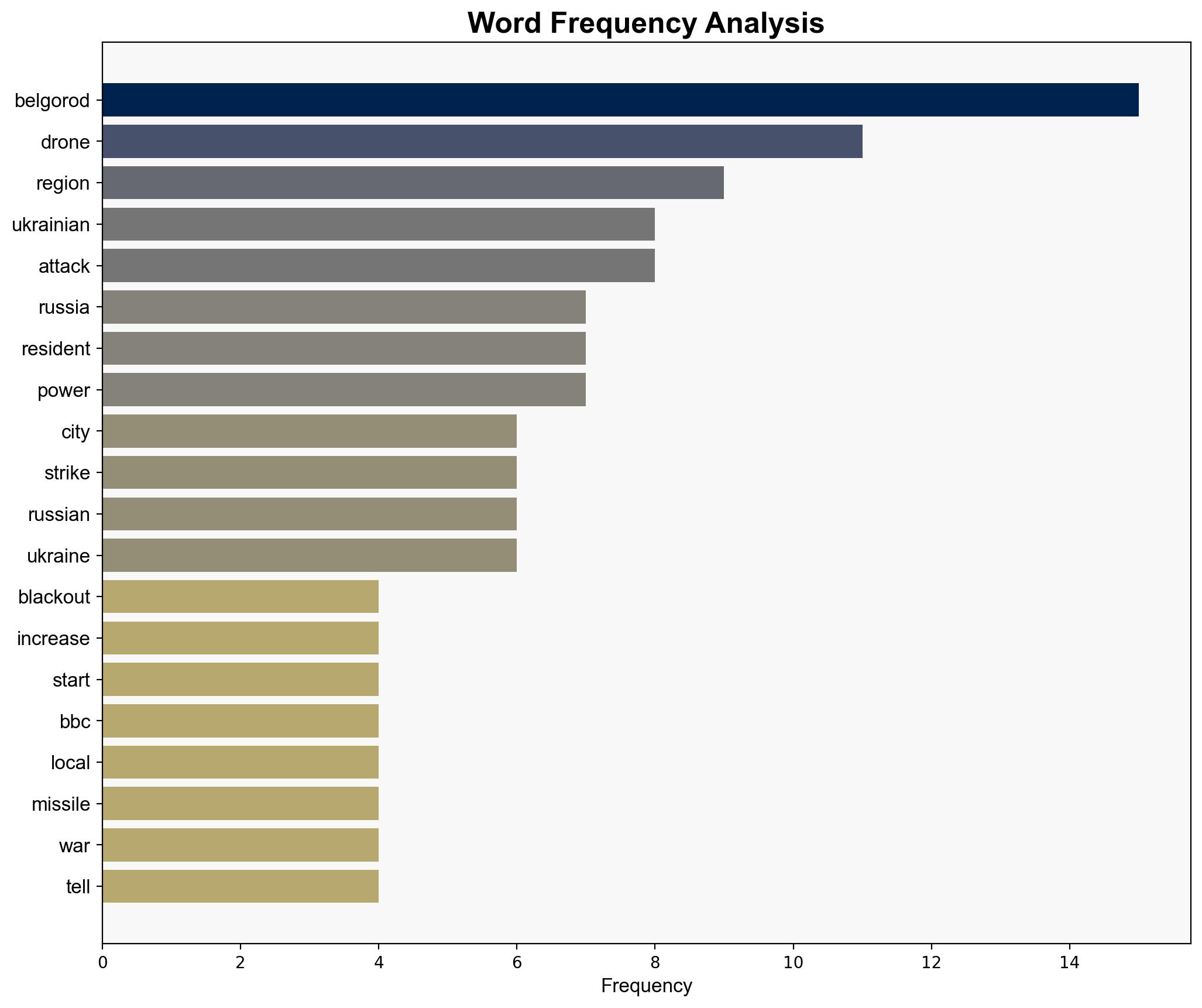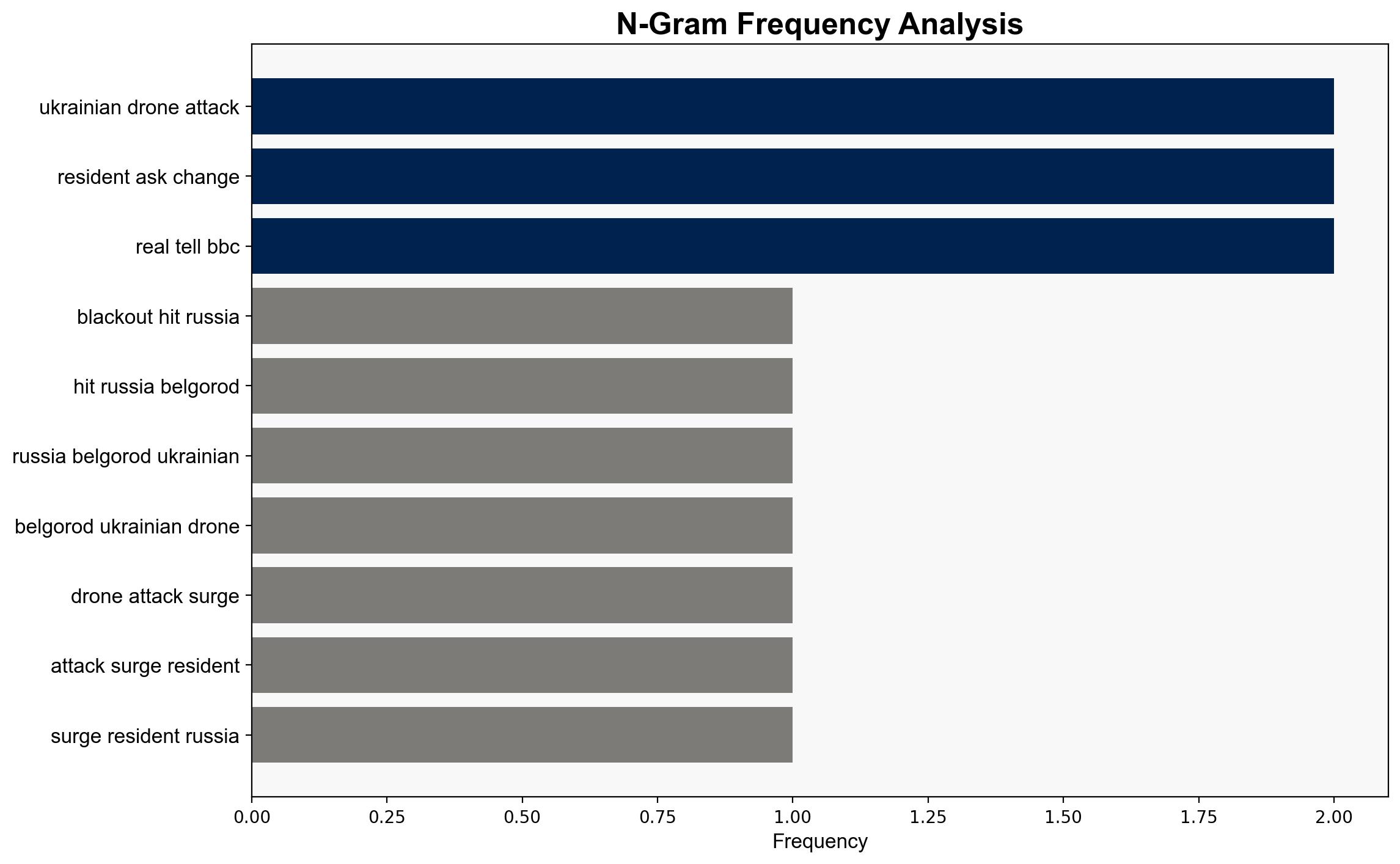Blackouts hit Russia’s Belgorod as Ukrainian drone attacks surge – BBC News
Published on: 2025-10-23
Intelligence Report: Blackouts hit Russia’s Belgorod as Ukrainian drone attacks surge – BBC News
1. BLUF (Bottom Line Up Front)
The most supported hypothesis is that the blackouts in Belgorod are primarily a result of increased Ukrainian drone attacks targeting critical infrastructure, as part of a strategic retaliation for Russian strikes on Ukrainian energy systems. Confidence level: Moderate. Recommended action: Enhance monitoring of cross-border activities and improve defensive measures for critical infrastructure in border regions.
2. Competing Hypotheses
Hypothesis 1: The blackouts in Belgorod are primarily due to increased Ukrainian drone attacks targeting Russian energy infrastructure as retaliation for Russian strikes on Ukrainian energy systems.
Hypothesis 2: The blackouts are primarily due to internal logistical and infrastructural issues within Russia, exacerbated by increased Ukrainian attacks but not directly caused by them.
3. Key Assumptions and Red Flags
Assumptions:
– Hypothesis 1 assumes Ukrainian drones have the capability and strategic intent to effectively target and damage Russian energy infrastructure.
– Hypothesis 2 assumes that Russia’s internal logistical issues are significant enough to cause widespread blackouts independently of external attacks.
Red Flags:
– Lack of detailed evidence on the specific targets and effectiveness of Ukrainian drone strikes.
– Potential bias in reports from local authorities and residents, possibly underestimating internal issues.
4. Implications and Strategic Risks
The increased frequency of drone attacks could lead to heightened tensions and potential escalation between Russia and Ukraine. There is a risk of broader regional instability if infrastructure attacks persist. Economically, continued blackouts could disrupt local economies and strain resources. Psychologically, persistent threats may erode public morale and confidence in government capabilities.
5. Recommendations and Outlook
- Enhance surveillance and defensive measures along the Russia-Ukraine border to detect and intercept drone attacks.
- Improve resilience of critical infrastructure to withstand attacks and mitigate blackout impacts.
- Scenario-based projections:
- Best Case: Successful diplomatic engagement reduces cross-border hostilities, stabilizing the region.
- Worst Case: Escalation leads to broader conflict, impacting regional security and economy.
- Most Likely: Continued tit-for-tat strikes with periodic disruptions in border regions.
6. Key Individuals and Entities
– Nina, a resident of Belgorod, provides anecdotal evidence of the local impact of blackouts.
– Ekaterina, a local student, describes personal experiences during missile alerts.
– Maria, an elderly resident, highlights the fuel crisis exacerbating the situation.
7. Thematic Tags
national security threats, cybersecurity, counter-terrorism, regional focus





